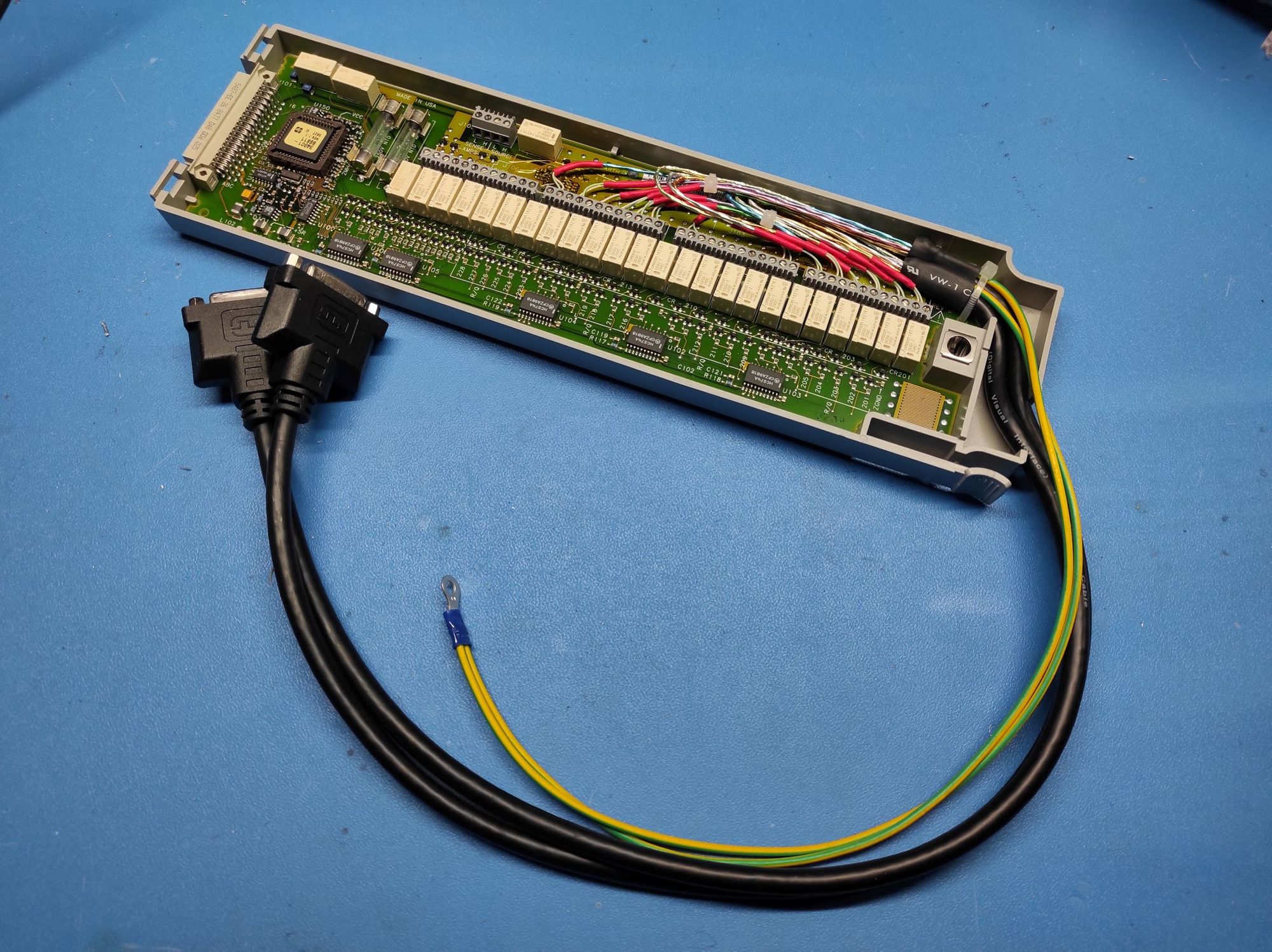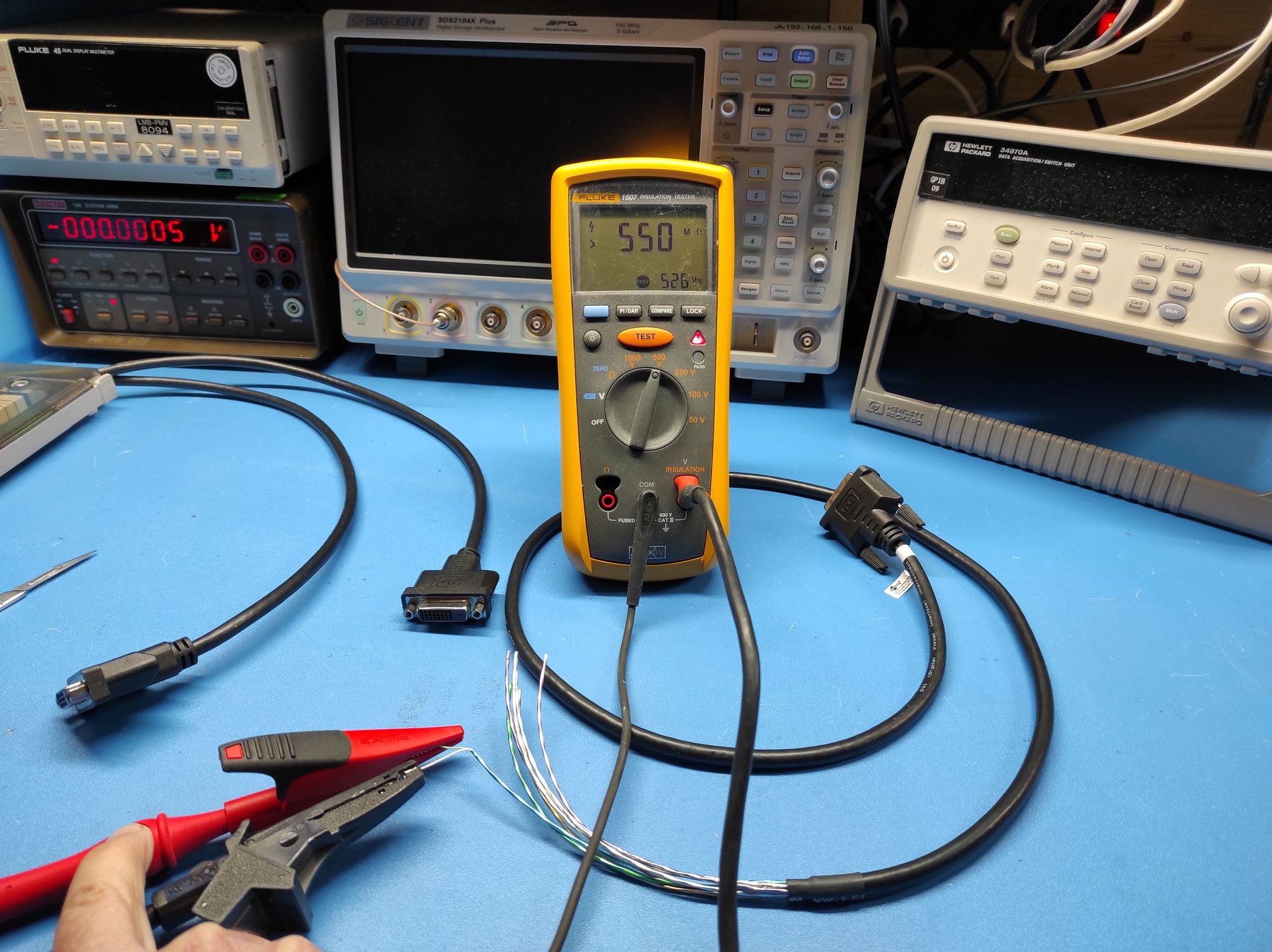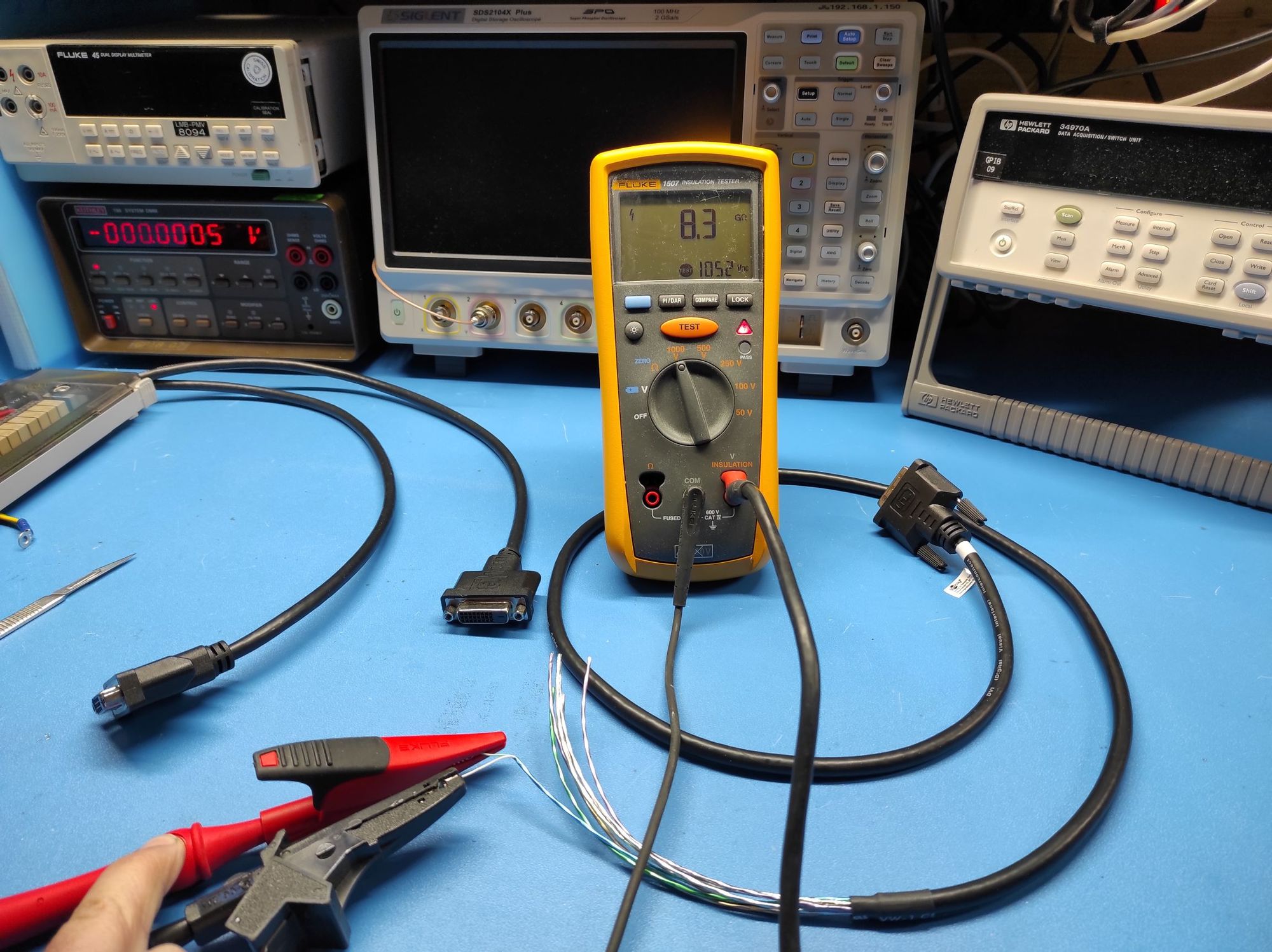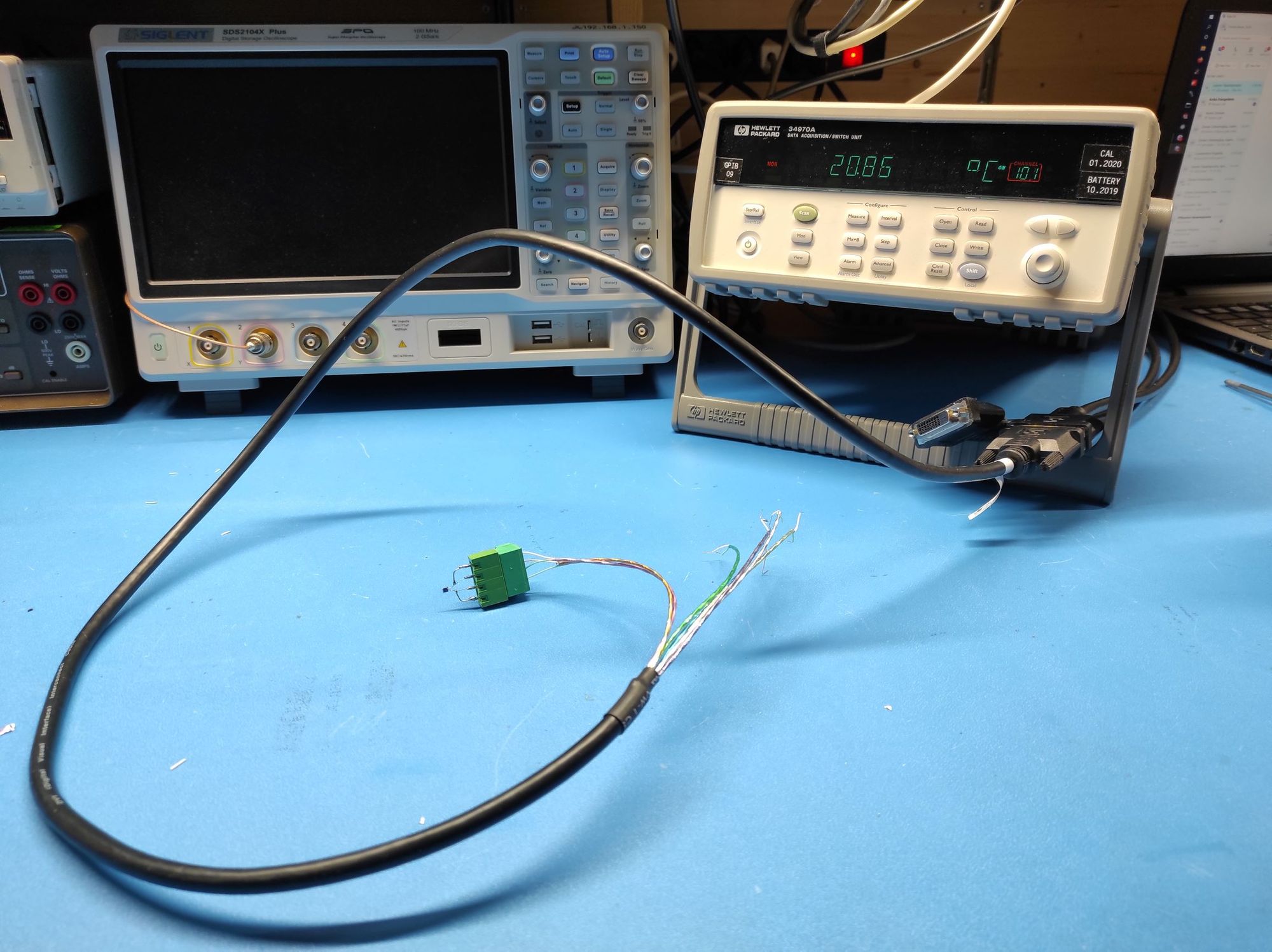Keysight has a video that shows how fast you can set up one channel of the 34901A to start recording data.
To wire one sensor they need 30 seconds. And that girl is working real fast.
In a more realistic situation if you have to wire 10 points you need more than 5 minutes. And if you are working on multiple projects you either need many multiplexers (about $500 each) or you need to remove the cables and rewire the card each time. Big turn off.
So I need a system that can do the following:
- Plug and unplug easily
- Be cheap enough to be able to dedicate one or more connector per project.
- Be slim enough to snake though the narrow cable opening of the 34901A.
- Cover as many of the multiplexer's inputs as possible.
- Use shielded / twisted pair cables to minimize EMI, crosstalk etc.
After examining many old cable types in my lab I found this DVI cable. It has 7 separately shielded twisted pairs and is moderately priced at about $4. Not bad at all. With just three cables I can cover all channels. I had two available so I wired just 14 channels.

Now let's see how the cable fares at an isolation test:


Of course I do not plan to use it for high voltage measurements but I would say it is safe enough for 100 Volts. And of course don't forget the earth connections.


